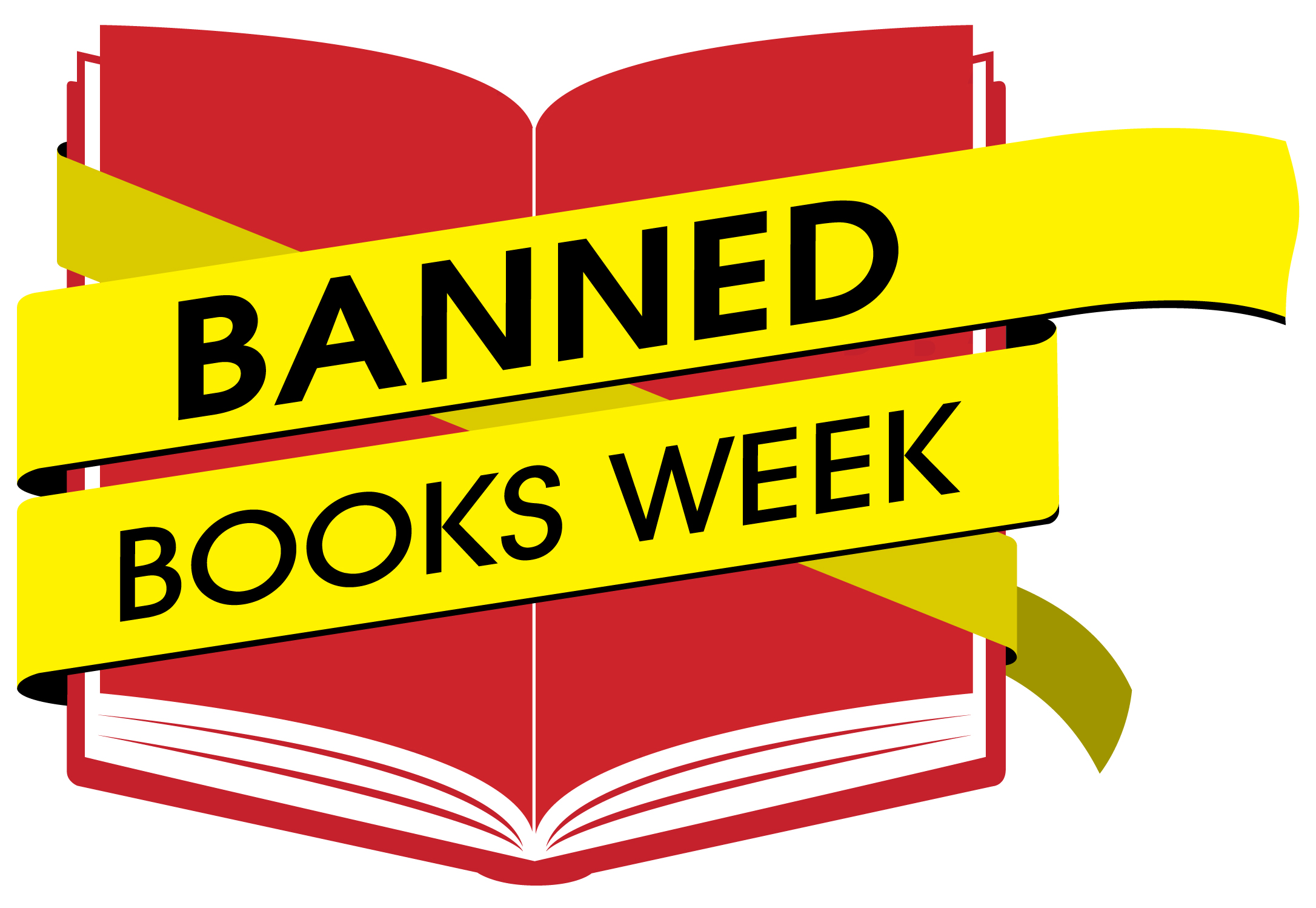By Michelle Sampson, Executive Director
Each year, the American Library Association (ALA), along with other organizations devoted to intellectual freedom, celebrates the freedom to read and calls attention to banned and challenged books. This year, “Banned Books Week” runs from Sept. 18 to 24, but given the unprecedented number of book challenges across the country recently, York Public Library has deemed it an important enough issue to merit a month-long observance.
Intellectual freedom is one of the central tenets of libraries and librarianship. It is set forth in ALA’s Freedom to Read Statement and Library Bill of Rights — both of which have been adopted by YPL’s Board of Trustees.
Last year alone, there were over 700 challenges to that freedom, including one in our own town. Every state is represented in the 1600-plus books targeted in public, school, and university libraries. This is the highest number of challenges on record since ALA’s Office of Intellectual Freedom began tracking them 30 years ago. Perhaps most disturbingly, more than three quarters of the 1100 books currently banned in public school libraries were written by or about LGBTQ+ and/or people of color.
The banning of books attempts to suppress ideas deemed dangerous to some and flies in the face of the democratic ideals we, as Americans, hold dear.
Perhaps the most flagrant violation of these ideals was the burning of more than 25,000 books in 1933 Germany. America’s response was to take to the streets: over 100,000 people marched in New York City and mass protests took place in major cities across the country. Every major US newspaper and magazine decried the deed and deemed it “a barbaric act that was out of keeping with a modern, civilized society.”
“That was 90 years ago,” you might say — “a different time, a different place.” But you might be surprised to learn that such “barbaric acts” are happening today within our own borders. Recently, two elected officials in Virginia advocated that certain books be burned, and a pastor in Tennessee organized a public bonfire of books — streamed live on social media. The seeming goal: to suppress and destroy ideas they didn’t espouse or think should be available to anyone else for consideration.
“The pen is mightier than the sword.” English playwright and novelist Edward Bulwer-Lytton wrote this famous line in his 1839 play Richelieu, or the Conspiracy, and it couldn’t be more appropriate in today’s climate. Last month, bullet-ridden books were found in a Montana library’s book donation bin.
The written word is a powerful thing, and to some, a dangerous one. In the last decade, over 600 journalists worldwide have been murdered because of the words they dared write. Nearly 300 of them were American.
“But those Americans were murdered in countries with repressive regimes,” one might argue.
Last month in Chautauqua, New York, writer Salman Rushdie was stabbed multiple times on stage where he was about to give a lecture. Of Indian descent, Rushdie holds dual citizenship in the U.K. and the U.S. His 1988 novel “The Satanic Verses” shone an unflattering spotlight on Islam and was deemed so inflammatory to some Muslims, the Ayatollah Khomeini issued a fatwa (a bounty on Rushdie’s head) that has remained in place for the last 30-plus years.
These might seem extreme examples, but make no mistake: from book challenges, to book bans, to book burnings, to the attempted and actual murder of those who dare to write, these incidents fall along a spectrum and its slope is a proverbial slippery one.
Surely no one would ban a dictionary, right? Wrong. A California school banned the Merriam-Webster Dictionary after a parent took issue with the fact it included a definition of oral sex. Perhaps Dr. Seuss would be a safer bet? Wrong again. The Lorax was banned for its negative portrayal of the logging industry and promotion of an environmentalist agenda.
It’s often said a truly great library has something to offend everyone. What one person deems objectionable, another finds perfectly innocuous. It isn’t difficult to see that were we to ban every title someone found offensive, there might be little left on our shelves.
This is why York Public Library has chosen to highlight intellectual freedom not for one week, but for the entire month of September.
We have displays of banned titles, many of which you will recognize from middle or high school English class. There are award-winning titles, best-selling titles, and titles that defy logic (hello, Merriam Webster, I’m looking at you).
There are book discussions for teens and adults and a showing of the film, A Wrinkle in Time, the book version of which shares the dubious honor with the Holy Bible of being one of most frequently banned books of all time.
We’re also running a Banned Book Challenge throughout the month with a chance to win a gift card to York’s very own bookstore, Booktenders.
Check out yorkpubliclibrary.org for this month’s “Staff Picks” featuring banned books each of us hold dear.
For more information about censorship, see oif.ala.org/oif, the website for ALA’s Office of Intellectual Freedom. It’s imperative we fight all attempts of censorship, because as author Ray Bradbury famously said, “There is more than one way to burn a book. And the world is full of people running about with lit matches.”
This article was originally published in the Library’s recurring column “Shelf Life” with The York Weekly and SeacoastOnline.com. View it here.

